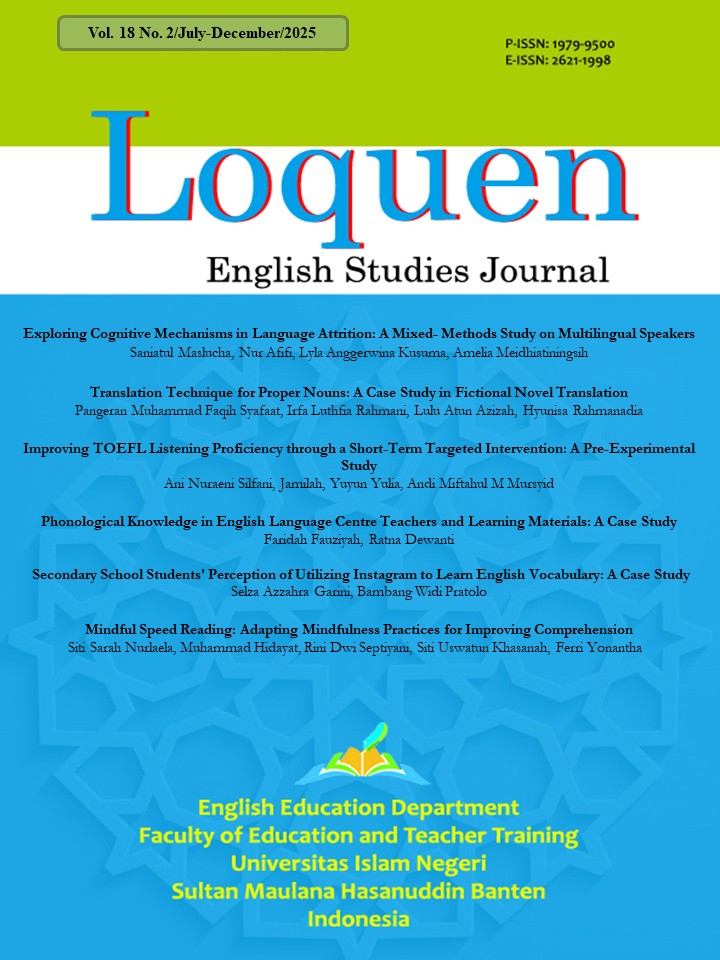Translation Technique for Proper Nouns: A Case Study in Fictional Novel Translation
 DOI:
DOI:
https://doi.org/10.32678/loquen.v18i2.11955
 Abstract viewed : 65 times
|
Abstract viewed : 65 times
|  pdf downloaded : 50 times
pdf downloaded : 50 times
Keywords:
Literary Translation, Proper Noun, The Chronicle of Narnia, Translation TechniqueAbstract
This research aims to analyze the translation techniques applied to proper nouns in the Indonesian translations of the seven books in The Chronicles of Narnia series and its translations. Employing a descriptive qualitative method, the data sources consisted of the original English texts and their corresponding Indonesian translations. The data comprised words and phrases identified as proper nouns. Data were collected through observation and note-taking techniques. The primary instrument was the researcher, supported by a set of indicators based on the characteristics of proper nouns to guide data selection. The analysis followed three stages: data condensation, description, and conclusion drawing. The result showed that translation and transference techniques emerged as the most frequently used techniques. Many proper nouns share the same form as common nouns but are identified by their capitalization, making literal translation a viable option. Additionally, most of the proper nouns in the novels are standard personal or place names that carry little to no inherent meaning. As a result, they are commonly retained in their original form through the technique of transference, with no need for further alteration by the translator. Furthermore, it is followed by Modification (6.8%), Addition (6.1%), Generalization (1.6%), Substitution (1.4%), Omission (1.2%), and Transference Plus Phonetic Adaptation (1.1%). Overall, this study underscores the need for a balance between linguistic accuracy and cultural accessibility in the translation of proper nouns in fictional works. It also needs careful technique selection to maintain readability and authenticity for target readers in the Indonesian context.
Downloads
Downloads
Published
Issue
Section
License
Copyright (c) 2025 Pangeran Muhammad Faqih Syafaat, Irfa Luthfia Rahmani, Lulu Atun Azizah, Hyunisa Rahmanadia

This work is licensed under a Creative Commons Attribution-ShareAlike 4.0 International License.





















